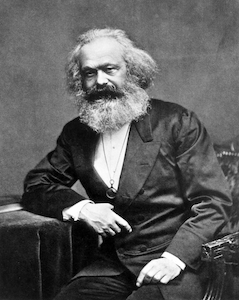To better understand each economic base in its simplest form, here is a brief description of each and its ideal use:
Communism is the economy of the family. If everyone contributes the most they can, and takes from it only what they need, the amount that is left can be used in many different ways for the enjoyment of the entire family. Besides families, other familiar things that are based on the communist theory are credit unions, farm co-ops, and fraternal organizations.
Socialism is the economy of the neighborhood. When an improvement to the neighborhood is desired, it can be paid for and maintained collectively for the use of all. It can also be used to develop the infrastructure for commerce that will benefit a neighborhood, or a region. Police forces, public libraries, and the departments under roads that paint crosswalks are familiar examples of socialism.
Capitalism is the economy of business and enterprise. It is the economy at play when an idea is turned into a business, when words are turned into books and music, or when work and talent are turned into creations. The person or people with the product put it out for public consumption with the risk that the public will not buy, but with the reward of profits if the public does buy. Besides the familiar large corporations that are easily recognizable as capitalist ventures, other familiar examples are mom and pop diners, stands at farmer's markets, and locally owned businesses.
Each has its place and purpose in a well-structured economy. Each goes through phases or will grow to push boundaries.
There are those who will say that it is good to stand on one set of principles that always applies, even when it doesn't work. I suppose the failure to see the irony is one reward, but it is far more than offset by the loss of the person who mistakes prejudices for principles.
When Keynes was questioned about offering solutions to problems ten years after giving different advice as solutions to different problems, he said, "When the facts change, I alter my conclusions. What do you do, sir?"
There are many schools from which we can learn to understand economics from different perspectives. Each will have truths and fallacies. Each will have failures to deliver what appear to be logical conclusions. In almost every case, the variable that causes the undesirable condition, or corruption in the equation, will be people, or, more accurately, the natures of people.
When people try to select only one economic base as the good one, they fail to recognize that a church having a library for its congregation, a neighborhood having a public library for its residents, and the enthusiast who owns a bookstore can all co-exist and succeed near each other. Each serves a purpose that defies simply which economic system is at the basis of its existence.
Furthermore, none is substantially improved by the elimination of the others, nor is one infringing on the intended market for the others.

No comments:
Post a Comment